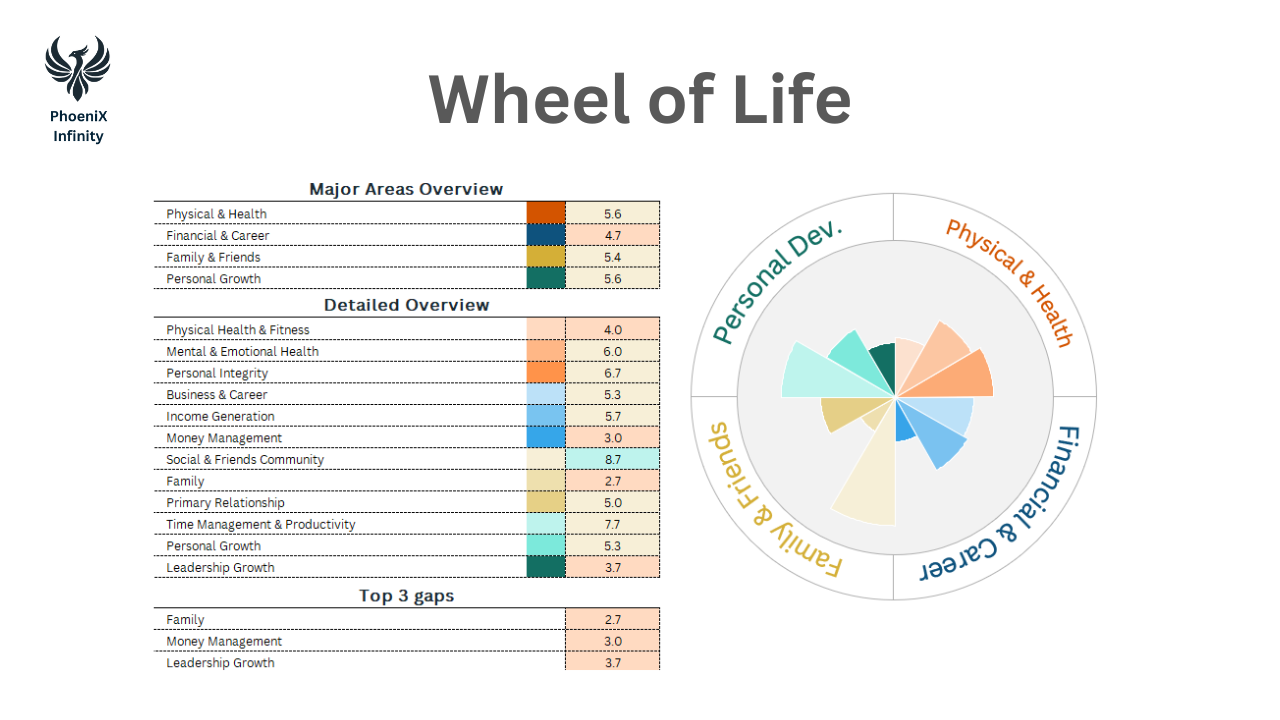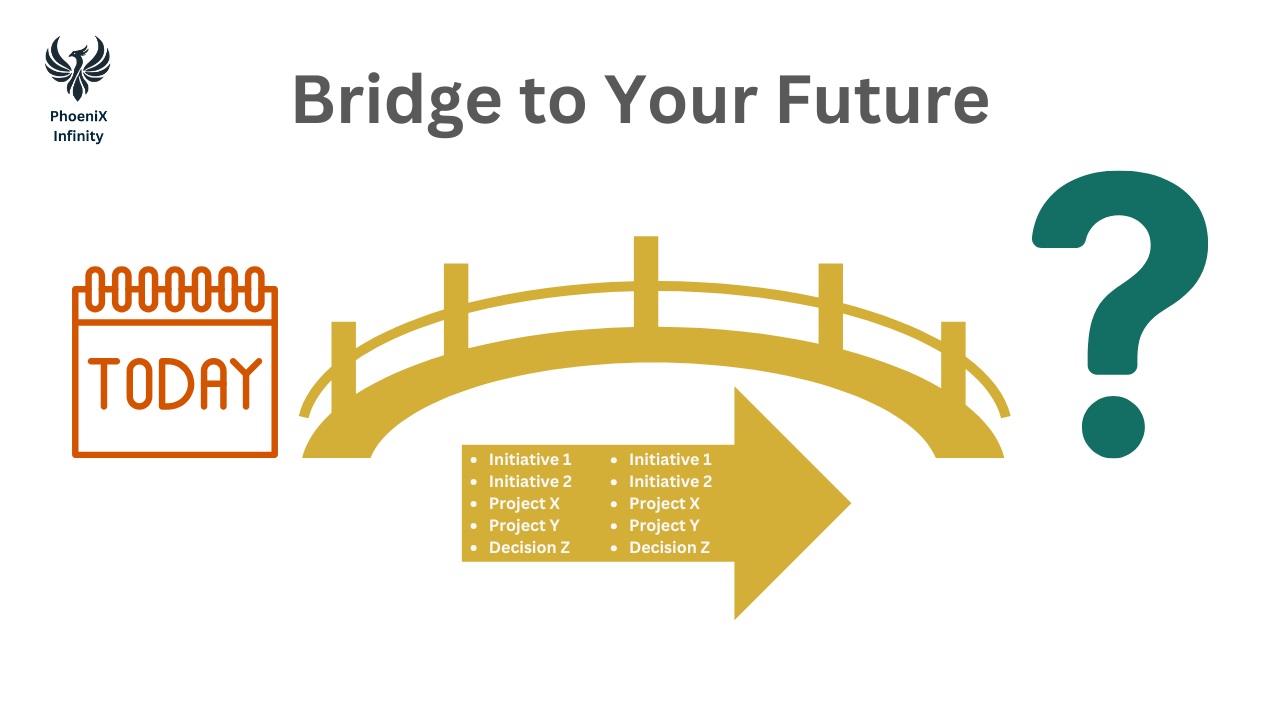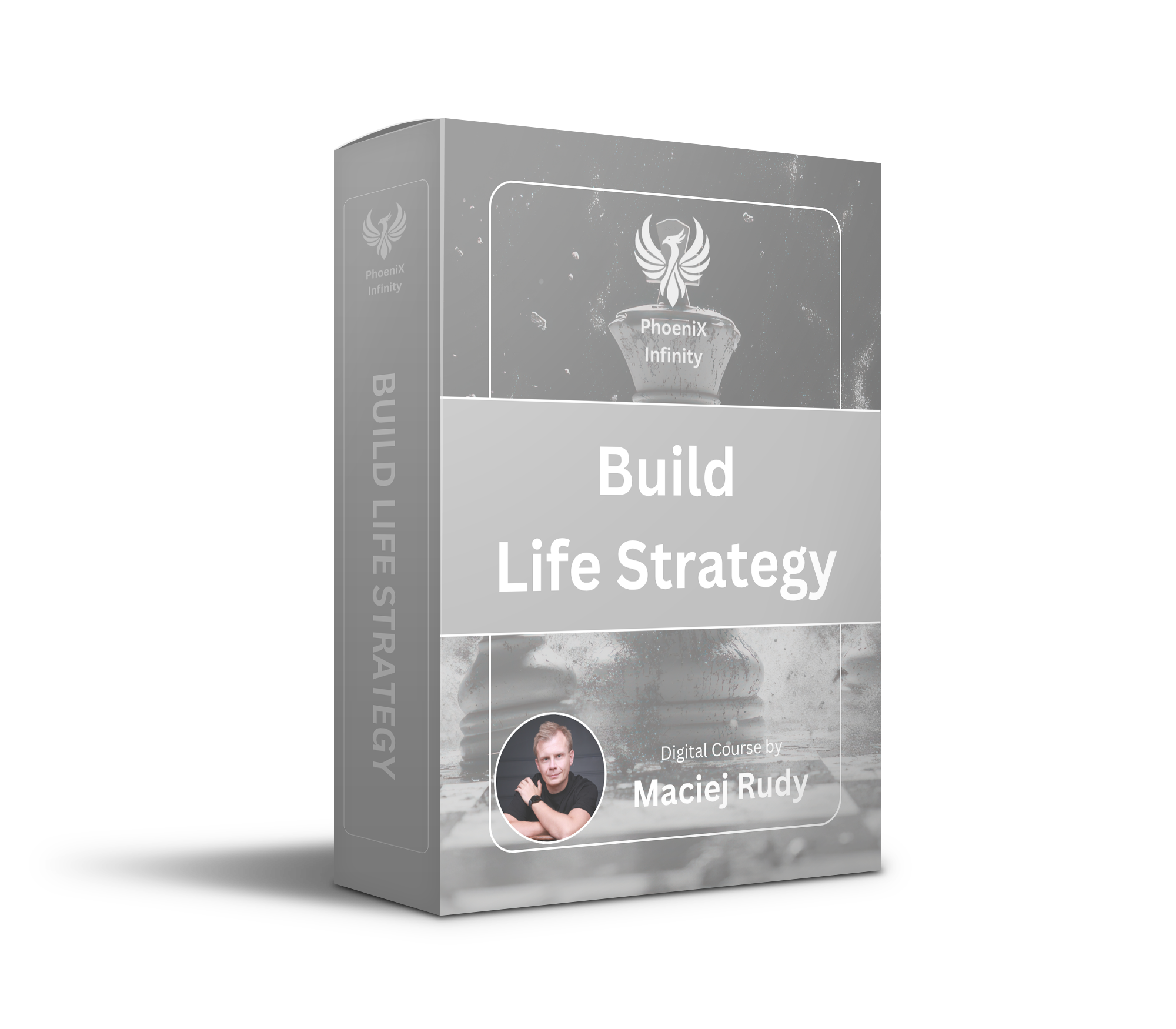How to Define Success on Your Own Terms
Nov 20, 2025
The Comparison Trap You Can’t Win
You don’t realize when it starts. You’re just scrolling; one promotion announcement, one viral “thought leader” thread, one video tour of someone’s lake house; until somewhere between the congratulations and the carousels you notice a small tightening in your chest. You close the app and the feeling lingers:
Am I behind?
You tell yourself it’s motivation, but it doesn’t feel like fuel. It feels like sand in the gears. And if you’re honest, the definition of success you’re measuring yourself against is a collage made from other people’s lives.
I’ve seen what that collage does to good people. They work harder, collect busy weeks like trophies, and still go to bed with the same unease:
Whose game am I playing?
The algorithm is loud, the world has opinions, and family stories run deep. But none of them live inside your skin. That’s the problem with chasing a borrowed definition: even when you “win,” it doesn’t feel like yours.
This article is an exit ramp. Not to a cottage in the mountains (unless that’s genuinely your thing), but to a practice for defining success on your terms and living by it when the feed gets noisy.
Success Is Personal, Not Performative
Here’s the mindset that changes the conversation: success isn’t a finish line, a title, or a follower count. It’s the felt experience of living in alignment with your values while making progress on what matters. It’s a moving target because you are a moving human: growing, learning, entering new seasons. That means your definition must be personal and alive, not borrowed and brittle.
If the last decade taught us anything, it’s that performance success can be optimized to death. You can polish a brand, engineer optics, and still feel hollow by Thursday. Personal success is quieter. It sounds like clarity. It looks like trade-offs you can explain without flinching. And it behaves like a compass that is useful in any weather.
Start Where You Are With Radical Honesty

Close the tabs. Put your phone in another room. Pour a glass of water. Get a single page and write four simple headings:
- Physical & Health,
- Financial & Career,
- Family & Friends,
- Personal Growth.
Now tell the truth, not the LinkedIn truth, the you at your kitchen table truth.
How’s your energy, really? When does your body feel like a teammate and when does it feel like a complaint department? In your work, are you solving problems that matter to you, or are you performing competence in a role that quietly exhausts you? In relationships, where are you nourished and where are you running a deficit? For growth, are you exploring and learning or repeating last year with a new calendar?
Write a short paragraph for each heading. Don’t dramatize. Don’t defend. Imagine you’re briefing a trusted partner who only wants facts because facts are what we can work with. This isn’t a verdict; it’s a baseline. And baselines are how adults change their lives without burning them down.
If you want a structured questionnaire check the PhoeniX Wheel of Life below
Name the Scripts That Hijack Your Choices
Every one of us carries scripts. “Real success is a VP title.” “A good parent never misses bedtime.” “By 30 you should…” Scripts are convenient; they absolve us from deciding. But they also drown us in guilt. Write down the three loudest scripts you can hear when you feel behind. Whose voice is it – parent, culture, manager, your twenty-year-old self? Then, line by line, replace each script with a sentence that’s more accurate for the person you are now.
Maybe “Real success is a VP title” becomes “Real success is doing consequential work while staying present at home.” Maybe “If I slow down I’ll lose my edge” becomes “If I never slow down I’ll lose the part of me that has an edge.” You’re not asking the world for permission to change the script. You’re recognizing you never needed it.
Write Your Personal Success Criteria
A vague feeling doesn’t anchor a life, but clear criteria do. Take each domain and write three crisp lines:
- Outcome (what will exist or be true),
- Feeling (how you want to experience it),
- and Constraint (what you refuse to sacrifice to get it).
For health, your outcome might be “steady energy and a body I trust,” your feeling “calm and capable,” your constraint “no crash diets; sleep stays protected.” For career/finance, the outcome could be “solving higher-value problems and building a six-month buffer,” the feeling “stretched, not fried,” the constraint “no routine 70-hour weeks.” Do the same for relationships and growth. You’ll feel a subtle shift as you write. Guilt gives way to geometry; choices start to have edges.
Collect these on one page. Congratulations: that’s your Success Scorecard. It isn’t a wish list; it’s a decision tool. When a new project arrives, when a recruiter calls, when you’re tempted by a shiny plan, you hold it up to the light of your scorecard and ask, Does this move me toward my criteria or only toward someone else’s applause?
Paint a Tuesday, Five Years From Now
The future is easier to navigate when it’s human-sized. Instead of conjuring a highlight reel, describe a normal Tuesday five years from now. What time do you wake up? What work are you responsible for? Who do you talk to? When do you move your body? Where do you see evidence that your relationships are alive? What do you shut down at the end of the day feeling quietly proud of?
Speak it into your voice notes if writing feels clunky. Then transcribe and condense to a paragraph. This isn’t fantasy; it’s a compass setting. The reason we write a Tuesday is because success lives in Tuesdays more than it lives in trophies.
Build the Bridge with Initiatives, Not Wishes
Bridges don’t appear because we believe in the other side; they appear because we lay planks. For each domain, choose two or three initiatives that would make your current paragraph look more like your Tuesday paragraph. Keep them concrete and observable.
Maybe health is a fixed bedtime window, three forty-minute movement blocks, and eating “boringly well” on weekdays. Maybe career is shifting twenty percent of your workload to higher-leverage problems, finishing a certification, and starting a value log so your achievements don’t evaporate. Maybe relationships are a Friday date night that survives busy weeks, a monthly parent call, and one intentionally deeper friendship. Maybe growth is one course, one project, one mentor; chosen to strengthen a capability you’ve decided matters.
Then choose a Theme of the Year. Don’t overthink it. “Health Rebuild.” “Career Reset.” “Reconnect.” The theme is permission to weight your effort on the thing that needs it most, without abandoning the other parts of you. Most people stay stuck because they try to fix everything at once and quit in a tangle of noble intentions. You’ll go further by aiming hard at one thing while keeping the rest alive.

Install Safeguards Before the Week Gets Loud
If willpower were enough, we’d all be done by lunch. Success sticks when you reduce friction and pre-decide responses to predictable derailers. This is where boundary and environment design do heavy lifting. Delete work apps after 7pm. Protect two meeting-proof deep-work blocks. Move your phone charging to the hallway. Put your gym bag by the door. Put the book you’re reading on the pillow every morning so Night-You has to pick it up.
Social safeguards matter too. Schedule a weekly “real talk” with someone who knows your context and will ask you if you’re living your constraints. Agree on the question they’ll ask when you wobble: “Is this moving you toward your Success Scorecard?”
Write three If–Then lines:
If late-night scrolling steals my sleep, then the phone sleeps outside the bedroom. If a new project threatens family dinner twice in a week, then I renegotiate the timeline or say no. If I feel behind, then I review my Evidence List instead of opening the feed.
Create a Cadence You Can Actually Keep
You don’t need a perfect plan; you need rhythm. Rhythm makes progress boring in the best way.
Once a month, spend half an hour with your Success Scorecard. Read it out loud. Choose one domain to nudge. Confirm your Theme of the Year or adjust it. No drama. Just steering.
Once a week, spend twenty minutes setting the week’s vital few. Book them during your natural peak hours – not the scraps around other people’s meetings. Reserve two “admin lanes” for email and Teams so you don’t bleed focus all day. If something must slip, name what and why; don’t let it slip in the dark.
Every day, take ten minutes at open and ten at close. In the morning, write the smallest next step for your most meaningful outcome. Not “write report,” but “draft outline with three bullets.” In the evening, log one win and set tomorrow’s first action. That little handoff between Today-You and Tomorrow-You builds trust you can feel.
Measure What Actually Matters
It’s tempting to measure what’s easy: status, likes, money. But those metrics can quietly pull you off your definition. Create a compact dashboard you can score 1–10 each week on three lines: Progress (what moved), Energy (how you felt doing it), Integrity (did you honor your constraints?). A “7/6/8” week tells a very different story than an “8/3/4” week. This is how you prevent accidental success that empties you out.
If you want to add one more line, make it Evidence. Keep a running list of shipped drafts, conversations that mattered, moments you chose alignment over optics. Optimism is easier when you can point at receipts.

A Single Quiet Hour
If you give yourself one hour today, here’s the flow that will move you from idea to motion:
- Write your four honest review paragraphs: Health, Career/Finance, Relationships, Growth.
- Replace three inherited scripts with three truer sentences.
- Draft your Success Scorecard (Outcome, Feeling, Constraint for each domain).
- Record a three-minute “regular Tuesday in five years,” transcribe to a paragraph.
- Choose your Theme of the Year and two or three initiatives per domain.
- Install two safeguards (one boundary, one environment tweak).
- Schedule your Month/Week/Day cadence for the next four weeks.
That’s it. Not perfect. Real. And real is what compounds.
Make Your Life the Reference, Not the Feed
Here’s the part we don’t say out loud: a normal, peaceful, well-designed life is rare; and it’s brave. It requires ignoring certain applause lines, disappointing a few expectations, and choosing criteria you can live with at 2am when the house is quiet. It requires remembering that success is not a mask you wear for the room. It’s the alignment you feel when the room is empty.
When you define success on your own terms, you don’t become smaller. You become specific. Trade-offs make sense. Next steps get obvious. The feed gets a little funnier and a lot less threatening. And you start recognizing a new sensation at the end of your days: not the spike of achievement, but the steadier hum of this is mine.
If that sounds like relief, that’s the point. Now go write your page and live by it.
Design Your Whole Life, Not Just Your Week
You don’t need more motivation. You need a strategy. This training gives you a complete, step-by-step system to design a life you’re proud of (across health, career, relationships, and growth) plus a toolkit that turns clarity into action.
What you get:
- A guided Life Strategy course with clear, bite-size lessons
- The full Phoenix Life Toolkit (worksheets, planners, reflection prompts, scorecards)
- A practical execution cadence so progress becomes routine, not random
- 14-day money-back guarantee: test it risk-free
Stay connected with news and updates!
Join our mailing list to receive the latest news and updates from PhoeniX.
Don't worry, your information will not be shared.
PS - You will get a surprise bonus!
I hate SPAM. I will never sell your information, for any reason.





